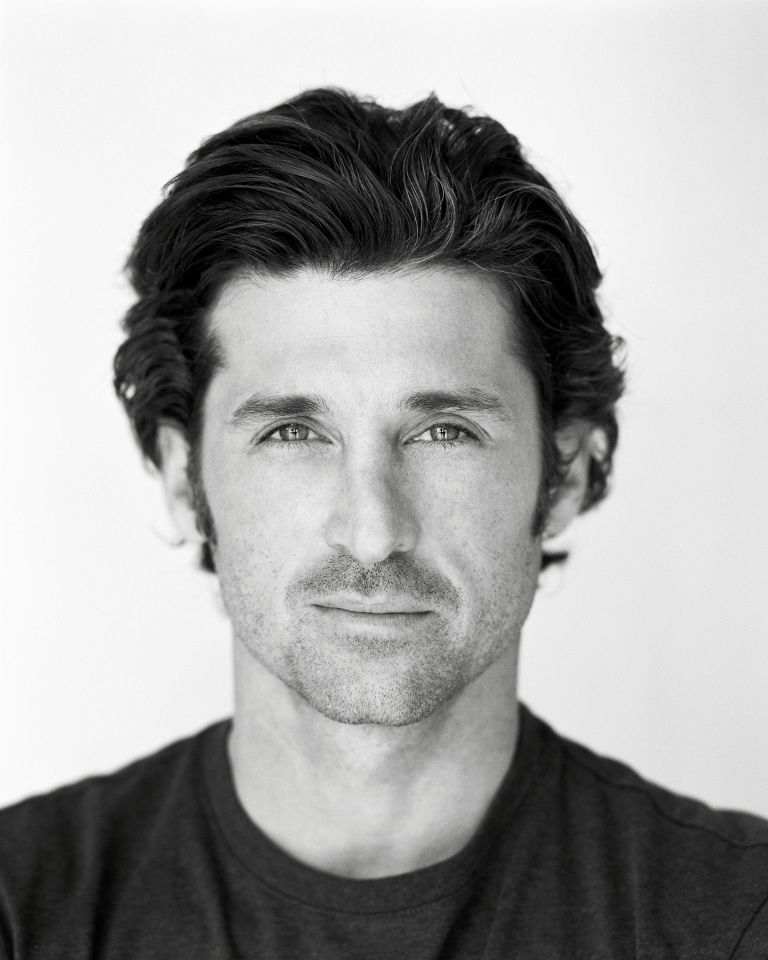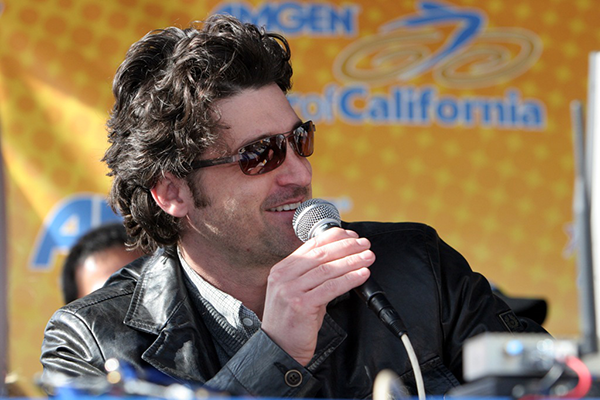Grey’s Anatomy’s Patrick Dempsey
Real-life drama prepared him for his new role as cancer advocate
by Laura Shipp
Patrick Dempsey plays America’s dreamiest neurosurgeon on the hit ABC medical drama Grey’s Anatomy. At the fictional Seattle Grace Hospital, his character, Dr. Derek “McDreamy” Shepherd, performs complicated, risky procedures, including a stand-still operation, double-barrel brain by-passes, and separation surgery for adult conjoined twins. But in real life, when his mother was diagnosed with ovarian cancer in 1996, Patrick admits that he felt powerless.
“I think the thing that happens when you discover that either you have cancer or someone in your family does is you realize how helpless you do feel,” Patrick tells me during a break from a fundraiser for Breakaway from Cancer™. Patrick remembers how overwhelming it was for his family to sort through the vast amount of information when looking for resources and treatment options to help his mother battle the disease. This inspired him to join the Breakaway from Cancer initiative, which raises funds for organizations that provide support for people living with cancer and their families.
“I really believe in what they’re doing and the partners that they are working with, which is The Wellness Community, a great support group for caregivers and people battling cancer,” he says. “And also the National Coalition for Cancer Survivorship and the good work that they’re doing in Washington.
“It really taught me how vulnerable you are in that situation. You can’t be alone. You need support.”
“Everybody at one point in their life is going to be affected by cancer. It’s inevitable, tragically. But the good thing is people are surviving now more than ever. They’re getting their check-ups and catching the disease earlier on,” he says. “For me, it was my mother who was diagnosed with ovarian cancer. She went through one bout, and we thought everything was okay. Then, she had to go through a second fight. She has been cancer-free for a number of years now.”

When I ask about his immediate reaction to hearing the news of his mother’s ovarian cancer diagnosis, Patrick replies, “Well, immediately, my first thoughts were doom and gloom because ovarian cancer is a deadly disease, and the information that we gathered was not positive. And then I thought, ‘Where do you turn?’
“Fortunately for us,” he continues, “my sister works at Central Maine Medical, so she had an insider’s take on the hospital, of who was a good doctor, what was going on, and how to translate the cryptic medical terminology that we couldn’t quite understand.”
Patrick, who was living in Los Angeles at the time, dealt with many of the challenges faced by long-distance caregivers. One of his concerns was keeping his mother’s spirits up during treatment. “I think the biggest thing to remember is the mental aspect of it. Psychologically, you need to stay positive and keep the fight up. For me, being on the West Coast was very frustrating. You feel guilty that you’re far away from home, that you can’t be there,” he says. “Thank goodness my sister was there to keep her thinking about the next day, about the future, and to keep her goal-oriented and thinking about things other than her treatment.”
Patrick recalls a specific incident that he says affected how he approaches his role as Dr. Shepherd on Grey’s Anatomy. “I really thought it was important that my character had a good bedside manner,” he says. “There was a choice that my mother made. There was a really good doctor, top in his field, and she did not like him because his bedside manner was terrible. Subsequently, it affected her health because of her attitude towards him, so she went back to her local doctor. I think you want the bedside manner. You want to feel that you’re cared for. That has really affected how my character deals with patients.”
Now 72, Patrick’s mother, Amanda, has been cancer-free for nine years. Her battle with and triumph over cancer has brought Patrick much closer to his mother. “I think you take for granted that your parents are going to be around forever,” he says. “Through this experience, you realize how precious life is and how fortunate we are to have the time that we do have with our parents.”
This article was published in Coping® with Cancer magazine, May/June 2007.
Read more featured survivor profiles.


